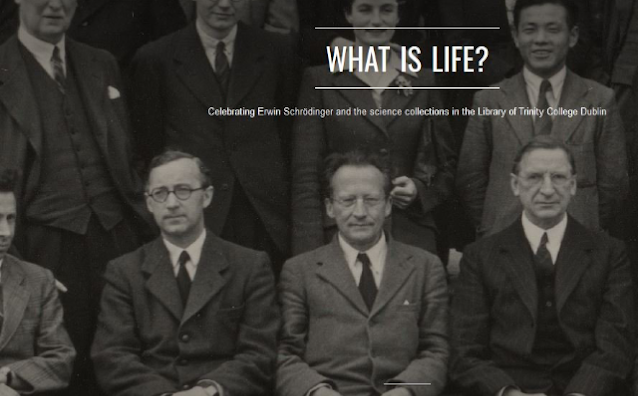Scientists took over the National Concert Hall yesterday to mark the first day of Schrödinger at 75, a two-day conference organised by the Trinity Biomedical Sciences Institute (TBSI). The future of consciousness, gene editing, and artificial intelligence were among the topics discussed by 12 of some of the brightest minds in science, each a leader in their respective fields. Divided into four sessions, the lectures culminated in the keynote address delivered by Professor Daniel Dennett of Tufts University, entitled: “What is Life?”
Organisers Professor Mike Murphy and Professor Luke O’Neill welcomed speakers and attendees to the event. 25 years since the 50th celebration was last held, Professor O’Neill, who also organised the 50th anniversary of Schrödinger’s lectures in 1993, noted that much has changed, not only in scientific discoveries during that time but including the progress made by the community to include people from all backgrounds. The 50th anniversary featured no female speakers and no young scientists, he noted, meanwhile, over 40% of the speakers at Schrödinger at 75 are female and numerous speakers are under 40.
It was evident from the start that Schrödinger at 75 is a celebration of the work that scientists do and its accomplishments since Schrödinger delivered the lecture ‘What is Life?’ in 1943. Former president Mary Robinson highlighted the importance of the field in her welcome remarks, stating that: “scientific discoveries drive economic progress and human development.” Professor O’Neil hoped that the event will, “generate new ideas,” just as Schrödinger’s lectures did.
Dr Leroy Hood, co-founder of the Institute for Systems Biology, highlighted interdisciplinarity in science as a standout concept from the event. Dr Hood, the scientist behind much groundbreaking research including the development of an automated DNA sequencer which eventually led to the sequencing of the human genome. “Biology could really be driven in the future by cross-disciplinarian movements,” said Dr Hood, pointing out that the development of the sequencer required a team not just of biologists but of physicists, mathematicians and engineers. Interdisciplinary research was further emphasised by keynote speaker Professor Dennett, known for incorporating philosophy with neuroscience, cognitive psychology, and artificial intelligence.
Trinity’s Professor Cliona O’Farrelly delivered the closing remarks of the day with a quote from Winston Churchill: “Success is not final, failure is not fatal: it is courage to continue that counts.” A fitting summary for the first day of Schrödinger at 75.






